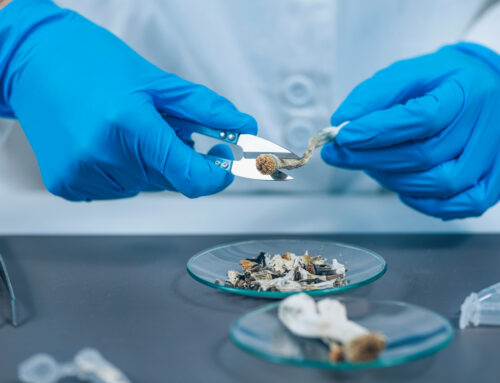If you’re having a hard time keeping track of all the new, emerging street drugs and their nicknames and emojis, don’t feel bad—-you’re not alone. One of the newer ones is an inhalant called Galaxy Gas, which is sweeping the country. Two others that should be on your radar are phenibut and N-bombs. All three are dangerous and too easy for people with substance use disorders to get hold of.
This Achieve Wellness and Recovery article discusses some frightening new street drugs, including Galaxy Gas, phenibut, and N-bombs.
What is Galaxy Gas?
Galaxy Gas is nitrous oxide (NO2 ), sometimes called laughing gas in its gaseous form. This drug has been around for a while. It’s basically the same thing as ‘whip-its’ and is often used as an anesthesia in sedation dentistry. Some readers may remember inhaling the propellant from a can of whipped cream or buying balloons filled with nitrous oxide at a concert. Aside from the name, what’s changed recently is its popularity and spread.
Don’t let the silly name or any familiarity you may have with nitrous oxide fool you. Like most inhalants, nitrous is very dangerous stuff. In its Galaxy Gas guise, this stuff is marketed as flavored nitrous oxide, packaged in eye-catching canisters with flavors like mango smoothie and tropical punch. If someone you love is using Galaxy Gas or other inhalants, it’s time for a talk.
What Does Galaxy Gas Do To You?
When inhaled, nitrous oxide produces a brief euphoric high, disrupting the central nervous system and reducing brain activity. Users often experience lightheadedness, giddiness, and sometimes mild hallucinations. The effects are short-lived, lasting only a few minutes, which can lead users to inhale repeatedly to maintain the high.
Effects of Galaxy Gas
While nitrous oxide is safe when used in controlled medical environments, recreational use poses serious health risks.
Inhaling Galaxy Gas can lead to:
- Oxygen deprivation (hypoxia): This can cause dizziness, fainting, and even loss of consciousness
- Brain damage: Prolonged use can impair memory, concentration, and coordination.
- Heart complications: Repeated use can lead to heart problems and even sudden death.
- Frostbite: The cold gas can cause frostbite on the nose, lips, or throat.
The Dangers of Galaxy Gas
The risks associated with using Galaxy Gas are severe. The short-lived high encourages repeated use, increasing the likelihood of oxygen deprivation and neurological damage. Additionally, the ease of access and the misconception that it is safe because it is used in food products contribute to its misuse.
Is Galaxy Gas Addictive?
Yes! Nitrous oxide can be addictive, especially in recreational use. It can also lead to psychological dependence, tolerance, and serious health risks like oxygen deprivation and brain damage.
What is Phenibut?
Phenibut (β-phenyl-γ-aminobutyric acid) is a central nervous system depressant developed in Russia in the 1960s. Its action is focused on the neurotransmitter gamma-aminobutyric acid (GABA), similar to other anxiolytic drugs like Xanax. Phenibut creates a sense of calm and may help relieve anxiety. Unfortunately, something else it has in common with drugs like Xanax is that it has a high potential for abuse. Phenibut is still legal in the U.S. at the time this was written. It is used medically in some countries to treat anxiety, insomnia, and other conditions, but it is not FDA-approved for clinical use in the U.S.
The Risks and Effects of Phenibut
Phenibut is neither FDA-approved nor safe for recreational use. Because it’s not a regulated pharmaceutical drug, you cannot know how pure it is or if other drugs or contaminants are present. Pure phenibut is dangerous enough and has sent people to ERs and poison centers across the country, per the CDC.
Short-Term Effects
- Relaxation and reduced anxiety
- Euphoria and mild stimulation
- Drowsiness and sedation
- Dizziness and confusion
- Nausea and vomiting
- Increased heart rate and high blood pressure
- Muscle spasms and weakness
- Dilated pupils
Long-Term Effects
- Dependence and addiction
- Withdrawal symptoms (e.g., anxiety, insomnia, agitation)
- Neurological damage (e.g., memory impairment, poor coordination)
- Severe sedation and respiratory depression
- Potential for overdose leading to coma or death
Is Phenibut Addictive?
Phenibut can be addictive, yes. Regular use can lead to dependence, and stopping suddenly can cause withdrawal symptoms like anxiety, insomnia, and agitation.
What are N-Bombs?
Another newer street drug we’ve been hearing about is N-bombs. While Galaxy Gas is inhalent with disassociative effects and phenibut mimics, the effects of benzodiazepines—N-bombs are different. Also known as 25I-NBOMe, N-bombs are synthetic hallucinogens that mimic the effects of LSD and mescaline. They are part of the phenethylamine family and are known for their potent hallucinogenic properties. Unlike the other drugs in this article, N-bombs are illegal in the United States.
The Risks and Effects of N-Bombs
N-bombs are typically found in liquid or powdered form and can be ingested, snorted, or absorbed through the skin. N-bombs are often sold as LSD, but they are much more dangerous due to their high potency and the small margin between a safe dose and a toxic one that could put someone in the hospital…or worse.
Effects of N-Bombs
- Hallucinations: Strong visual and auditory distortions.
- Euphoria: Intense feelings of happiness and well-being.
- Anxiety and paranoia: Often leads to severe panic attacks.
- Psychosis: Risk of severe mental disturbances and delusions.
- Physical effects: Increased heart rate, high blood pressure, and muscle spasms.
Risks of N-Bombs
- Overdose: Even a small amount can be toxic, leading to seizures, heart problems, and death.
- Unpredictability: Effects can vary greatly between individuals and doses.
- Legal issues: N-bombs are illegal in many countries, including the United States.
Are N-Bombs Addictive?
While N-bombs don’t cause physical dependence or withdrawal symptoms, they can be psychologically addictive. The danger of panic attacks, psychosis, or overdose should be enough to steer clear of this stuff. N-bombs are VERY dangerous.
Achieve Wellness and Recovery: Raising Addiction Awareness
As one of New Jersey’s leading alcohol and drug treatment centers, we have a responsibility to not only provide excellent care but to inform and educate. We publish articles like these to help people with substance use disorders and the people who love them learn more about addiction, the threat of emerging drugs—-and, most importantly, how to get help for addiction.
If you’re unsure whether you or a loved one is ready for addiction treatment, don’t hesitate to contact us. We are here to answer your questions and provide guidance so you can make an informed choice about treatment for addiction.
Reach Achieve Wellness & Recovery at: (833) 680-0142
Click here to learn how our New Jersey drug rehab can work with your insurance.








